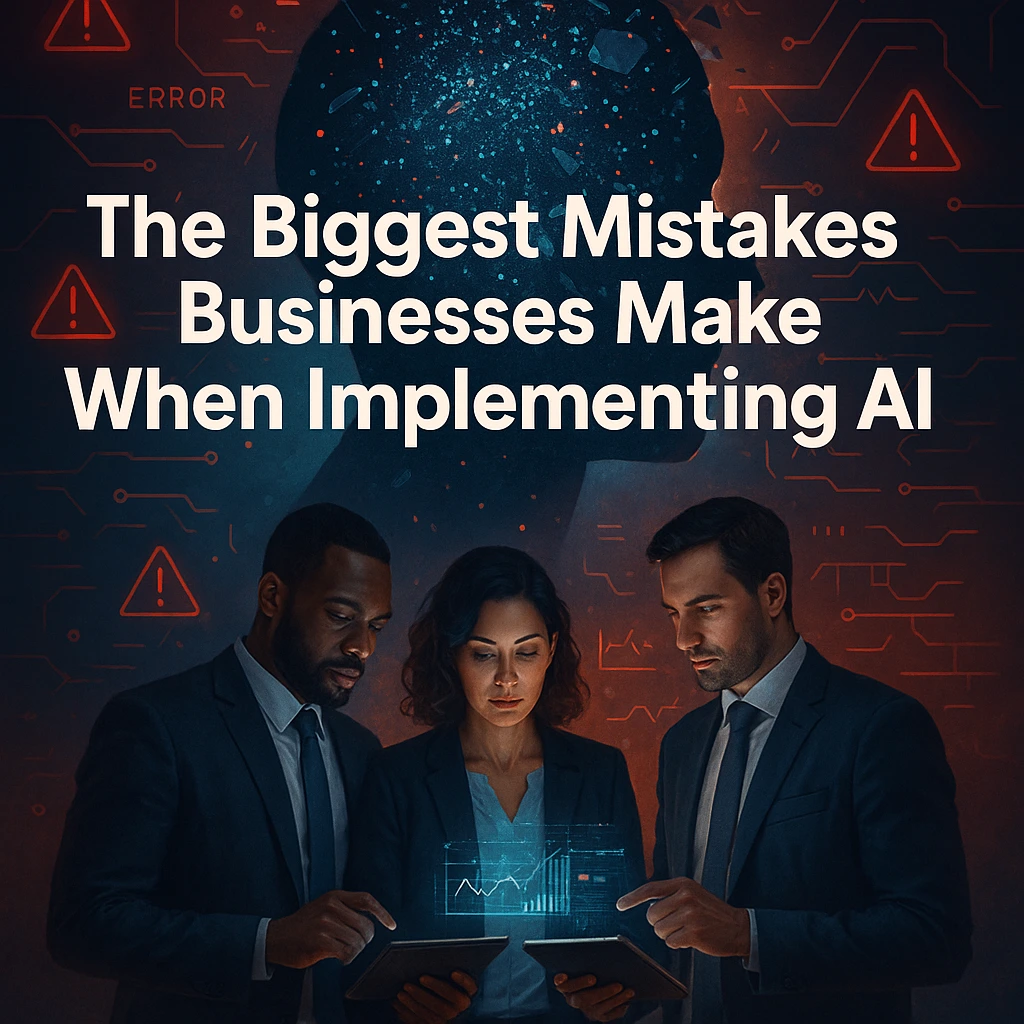Overview
Artificial Intelligence (AI) has rapidly become a transformative force across industries, offering unparalleled opportunities for growth, efficiency, and innovation.
However, many businesses encounter common pitfalls during implementation that can hinder their success and ROI.
Understanding these mistakes is crucial for harnessing AI’s full potential and avoiding costly setbacks.
At Aixelerate, we specialize in guiding businesses through these challenges, ensuring your AI investments pay off effectively.
The Biggest Mistakes in AI Implementation
Ignoring Data Quality (Garbage In, Garbage Out)
One of the most critical errors is neglecting the importance of data quality.
AI models are only as good as the data they are trained on.
Recent studies show that approximately 76% of companies using AI lack ethical AI policies, and 74% do not address potential biases.
Poor quality data can lead to biased, inaccurate, or unreliable outputs, undermining trust and decision-making.
Ensuring data is clean, well-structured, and ethically sourced is essential for success.
Choosing Tools Without Clear ROI
Many organizations invest in AI tools and solutions without a well-defined return on investment (ROI).
While 78% of global companies have adopted AI in some capacity, only about half are able to attribute measurable financial benefits to their moves.
Businesses report an average ROI of $3.70 for every dollar invested in generative AI, with productivity improvements of up to 80% and an average operational cost reduction of 22%.
Clear objectives and metrics should guide AI investments to ensure they contribute to business goals.
Not Training the Team Properly
AI is not just a technology but also a competence that requires skilled personnel.
A significant skills gap exists, with 41% of workers overstating their AI expertise for career advancement.
Organizations that neglect workforce training risk underutilizing their AI tools and experiencing workflow disruptions.
Investing in ongoing training, upskilling, and fostering a culture of continuous learning enhances AI adoption and effectiveness.
Over-Automating and Losing the Human Touch
While automation can streamline operations, over-reliance on AI may erode the human element that is vital for customer relationships and strategic thinking.
Only 39% of Americans consider current AI technologies safe and secure, reflecting a trust gap.
Striking a balance between automation and human oversight ensures AI enhances rather than diminishes the quality of business interactions.
How Makes These Pitfalls Costly
These mistakes can lead to significant repercussions, including legal challenges, regulatory penalties, and damage to brand reputation.
Over 100 active AI-related lawsuits in the U.S. often involve issues of bias and data privacy.
Trust deficits and ethical oversights further hamper AI’s integration and long-term viability.
Conclusion
While AI promises substantial benefits, successful integration hinges on avoiding these common pitfalls.
Addressing data quality, establishing clear ROI, investing in workforce training, and maintaining the human touch are key pillars of effective AI strategy.
At Aixelerate, we help your business navigate these challenges, ensuring your AI investments deliver real value.
Contact us today to learn how we can support your AI journey and maximize your returns.


